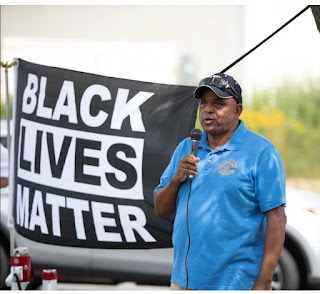Newburgh police reform: committee pushes for broad change
Newburgh police reform: committee pushes for broad change
Times Herald-Record
CITY OF NEWBURGH - Systemic change within the agency should be at the heart of their work. That's what some members of the committee tasked with advising Newburgh's police department on reforms as part of a state mandate.
But after months of working with the city's police chief and a senior police adviser, they said progress on addressing cultural issues within law enforcement appears to be moving slowly. And most of the work is resulting in recommendations to tweak general orders.
"Policies have always been on the books, but it's about the culture, it's the systematic culture at the police department," said the committee's chair Ray Harvey, president of the Newburgh-Highland Falls NAACP. "If at the end of the day you change all these policies but the police department is still policing themselves, what good is it?"
Police Chief Arnold Amthor said they have been doing the best they can thus far, despite challenges that include arguing among committee members and struggling to stay focused during meetings.
Amthor said he is open to a conversation on systemic and cultural changes to city policing, but the committee has had little to no discussion about how to approach such a broad topic.
New York Gov. Andrew Cuomo issued the executive order, also referred to as the New York State Police Reform and Reinvention Collaborative, weeks after George Floyd, a Black man, was killed by a white police officer in Minnesota. His death sparked protests around the country and throughout New York state this summer, including in Newburgh, about over-policing and police brutality against people of color.
The order requires municipalities to submit a plan to modernize and improve their police agencies by April 1 or risk losing state funding.
To Harvey and Isaiah Valentine, a member of the committee, bringing the community at-large into the meetings is paramount to driving broader discussions about systemic change.
The city issued a news release announcing two public comment sessions that will be incorporated into the 6 p.m. meetings on Dec. 8 and 15. Commenters must register on Zoom by noon on the day they want to speak. To register for the Dec. 8 meeting go to https://bit.ly/3op5ALR; for the Dec. 15 meeting go to https://bit.ly/3mKk3S6.
The release also stated that the committee has reviewed more than 10 policies, including Use of Force, and that a "substantial portion" of work that will provide a framework for a draft of their action plan has been completed.
Areas of agreement
Harvey, Valentine, who helped organize protests in Newburgh this summer, and Amthor do agree that recommendations to amend body-worn camera and K9 use policies, and to pursue more de-escalation training, represent some progress.
Those recommendations more specifically include:
· officers turning on body cameras before they go on a call instead of waiting until an incident happens;
· only requiring one gun training a year for officers and dedicating more time to de-escalation training;
· re-evaluating the use of K9 unit dogs on people.
Despite the challenges, Amthor said he hopes the committee, in some form, will continue well beyond the April 1 deadline for the state report.
"We are moving forward," Amthor said. "And one of the primary recommendations that's going in my report is that as a result of this dialogue, there is a lot of work that needs to be done in working with the police and the community to improve relations."
Though Harvey and Valentine said they have received pushback for challenging the committee to dig deeper with their recommendations, the men said they want to be honest with the community about the work that lies ahead.
"It's all supposed to be about changing the culture of the police department and how they police," said Harvey.
lbellamy@th-record.com




Comments
Post a Comment